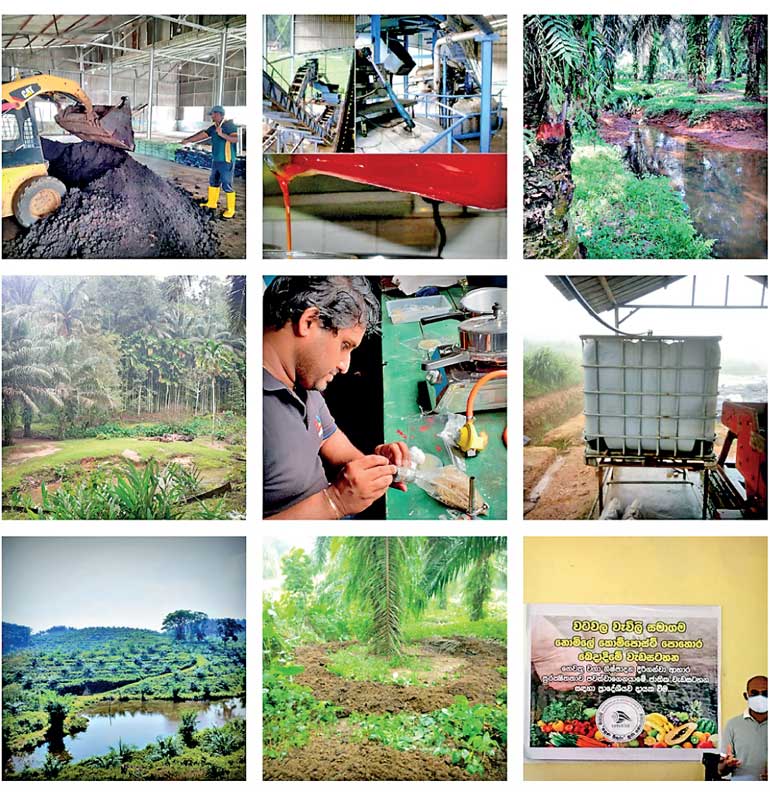Sunday Feb 22, 2026
Sunday Feb 22, 2026
Wednesday, 22 September 2021 00:00 - - {{hitsCtrl.values.hits}}

WPL’s strong sustainable agribusiness initiatives across Sri Lanka
 |
| Watawala Plantations Chief Executive Officer Binesh Pananwala
|
Affirming its deep-rooted commitment to sustainability, Sri Lanka’s leading diversified agribusiness company Watawala Plantations PLC (WPL), is strongly pushing for change within the industry with strong efforts to promote and encourage sustainable agriculture practices.
With the steep rise in pressing environmental challenges across the globe, the company doubled down on their plan to contribute towards the best short- and long-term outcomes for Sri Lanka’s large agriculture sector and its constituents.
“Watawala Plantations has always operated on the ethos that the health of our planet, people and businesses are completely intertwined. As a company that is deeply reliant on the environment, it’s up to us to push for impactful change within the industry and drive important disciplines within our operations to secure and sustain natural resources for the benefit of the many generations ahead. This also involves re-examining, reforming and realigning current agro policies with novel scientific evidence to ensure that they support a sustainable framework of action for agribusinesses across the country,” remarked Watawala Plantations Chief Executive Officer Binesh Pananwala.
Watawala Plantations is committed to sustainable manufacturing practices on both its major fronts of palm oil and dairy. Therefore, the company’s operations are infused with a holistic composition of legal, economical, environmentally appropriate and socially beneficial practices to drive towards this vision.
Known for its high-quality, market-leading dairy products, Watawala Dairy Ltd. (WDL), produces over 750 metric tonnes of cattle manure – the largest quantity produced by a company in Sri Lanka – together with over 4,000 metre cubes of cow dung slurry, comprised of high nutrient levels superseding any other raw material in today’s market. This is largely credited to the addition of microbes which enhance nutrient content when the cow dung is converted to liquid fertiliser.
Further, Watawala Plantations has also commenced the production of compost. The Nakiyadeniya Oil Palm production site recently introduced the novel Watawala Sarupasa Compost, comprising various potent ingredients such as cow dung and legumes and waste slurry derived through carbides, which are compounds composed of carbon and less electronegative elements. It is a multi-purpose organic fertiliser that can be applied to a diverse variety of crops, which adds organic matter to improve the soil structure and supplies both macro and micronutrients vital to the healthy growth of plants.
The compost is enriched during the production process with two beneficial and eco-friendly plant growth-promoting Rhizosphere bacteria and two biopesticide fungi capable of controlling plant root diseases, enhancing root growth and immunity of plants, and improving beneficial biological activities of the soil food web.
This fertiliser is also unique from other market composts produced from substandard municipal waste, which contain heavy metals, hospital waste and other toxic substances. Comparatively, Watawala Sarupasa is produced to the highest standards after being subjected to a stringent lineup of laboratory tests and monitoring practices to detect harmful trace elements that it may have been exposed to.
Meanwhile, Watawala Plantations is also deeply committed to reducing its carbon footprint and emissions. To do this, the company maps out Green House Gas emissions using the latest RSPO Palm GHG calculator and GHG Protocol accounting standards. Net Emissions was determined at 13726.42 t CO2 e. Carbon intensity has reduced from 1.684 t CO2 e/MT to 1.156 t CO2 e/MT, following the 10% increase in palm oil production in 2018 to 2019. With an RSPO Supply Chain and RSPO Principles and Criteria certification under its belt to assure operational transparency, Watawala Plantations works hard to ensure the claim of sustainable production throughout their supply chain and physically handle certified sustainable oil palm.
With a strong agenda and vision, Watawala Plantations powers ahead to further integrate sustainability into the workings of Sri Lanka’s agriculture sector. Being at the forefront of several social projects, including providing clean water to several areas across the island, Watawala Plantations has trademarked itself as a brand synonymous with inciting positive change within society and a champion for the environment.